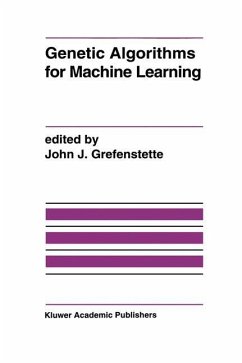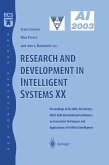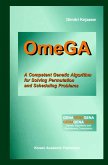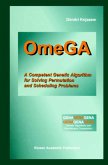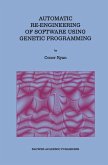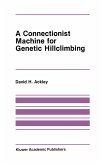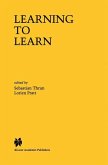The articles presented here were selected from preliminary versions presented at the International Conference on Genetic Algorithms in June 1991, as well as at a special Workshop on Genetic Algorithms for Machine Learning at the same Conference.
Genetic algorithms are general-purpose search algorithms that use principles inspired by natural population genetics to evolve solutions to problems. The basic idea is to maintain a population of knowledge structure that represent candidate solutions to the problem of interest. The population evolves over time through a process of competition (i.e. survival of the fittest) and controlled variation (i.e. recombination and mutation).
Genetic Algorithms for Machine Learning contains articles on three topics that have not been the focus of many previous articles on GAs, namely concept learning from examples, reinforcement learning for control, and theoretical analysis of GAs. It is hoped that this sample will serve to broaden the acquaintance of the general machine learning community with the major areas of work on GAs. The articles in this book address a number of central issues in applying GAs to machine learning problems. For example, the choice of appropriate representation and the corresponding set of genetic learning operators is an important set of decisions facing a user of a genetic algorithm.
The study of genetic algorithms is proceeding at a robust pace. If experimental progress and theoretical understanding continue to evolve as expected, genetic algorithms will continue to provide a distinctive approach to machine learning.
Genetic Algorithms for Machine Learning is an edited volume of original research made up of invited contributions by leading researchers.
Genetic algorithms are general-purpose search algorithms that use principles inspired by natural population genetics to evolve solutions to problems. The basic idea is to maintain a population of knowledge structure that represent candidate solutions to the problem of interest. The population evolves over time through a process of competition (i.e. survival of the fittest) and controlled variation (i.e. recombination and mutation).
Genetic Algorithms for Machine Learning contains articles on three topics that have not been the focus of many previous articles on GAs, namely concept learning from examples, reinforcement learning for control, and theoretical analysis of GAs. It is hoped that this sample will serve to broaden the acquaintance of the general machine learning community with the major areas of work on GAs. The articles in this book address a number of central issues in applying GAs to machine learning problems. For example, the choice of appropriate representation and the corresponding set of genetic learning operators is an important set of decisions facing a user of a genetic algorithm.
The study of genetic algorithms is proceeding at a robust pace. If experimental progress and theoretical understanding continue to evolve as expected, genetic algorithms will continue to provide a distinctive approach to machine learning.
Genetic Algorithms for Machine Learning is an edited volume of original research made up of invited contributions by leading researchers.
` ...well organized ..., and the papers are carefully selected. ... it was a pleasure to read the book and I would recommend the book for researchers (postgraduate students or lecturers) in machine learning.' The Knowledge Engineering Review, 10:1 (1995)
` ...well organized ..., and the papers are carefully selected. ... it was a pleasure to read the book and I would recommend the book for researchers (postgraduate students or lecturers) in machine learning.' The Knowledge Engineering Review, 10:1 (1995)

